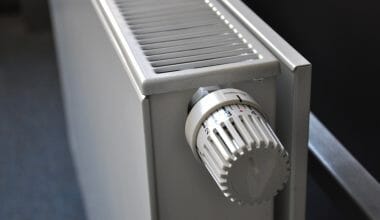One common question a homeowner might have is “why do mice make noise when trapped?” One reason for the noise is that mice are far more vocal than most people believe. Mice emit ultrasonic noises, which are unheard by humans, but can be heard by other animals, including pets. These sounds are particularly noticeable at dusk and dawn, when mice are most active. This is why most homeowners who deal with a mouse infestation will hear squeaks at night.

Rats make similar sounds
The study found that female rats spent more time in the boxes that were close to the source of rat sounds than males did. This was not related to the sex of the rats, but they did seem attracted to these sounds. The same effect was seen when the rats were exposed to a white noise sound.
The sounds that rats make when trapped mice are very similar to those of non-target rodents. In fact, the calls of free-living California mice were much more variable and higher in frequency. Therefore, calls that closely resemble the sounds of unstressed wild rats are likely to be the most effective lures. In field experiments, it is important to trial the calls that attract female rats first.
Opossums
One of the most effective ways to get rid of opossums is to catch them in a trap. Expert trappers prefer one-door traps because they are more secure and can catch larger critters. However, if you have a stubborn opossum, you can try using two-door traps. These will encourage reticent animals to take the bait. A sweet-smelling fruit or wet pet food can be used as bait.
When trapped, opossums make noise because they are scared. They make a deep growling sound when threatened, and this sound gets louder the closer they are to the danger. They also make a clicking “smack” noise when they are looking for a mate. The sound is also used by baby opossums to communicate with their mothers. Opossums also make noise when they are building a nest.
Raccoons
Although raccoons are relatively small, they can still cause a lot of damage. The animals have sharp teeth, so they can gnaw through roofing tiles, drywall, and wood. They also damage electrical wiring and HVAC components. If you want to get rid of raccoons from your home, you need to seal any possible entry points. Another option is trapping the animals. However, you need to know the laws and regulations about nuisance wildlife.
Raccoons are nocturnal animals, so they usually only make noise at night. If you hear their noise, it may be because they are searching for food. They also make a lot of noise if they get stuck in your attic. When trapped, they scratch at the drywall and insulation. In addition, you may also hear a distinct crying chatter when raccoons are having babies.
House mice
When mice are trapped inside a home, they often make noise. Not the kind of noise you’d expect – you don’t hear mice running around your front door screaming “MOUSE IN THE HOUSE!” Rather, they make noises inside walls and ceilings. They make squeaks and scratching sounds, and this is why it’s important to listen carefully.
One of the first things you should do to get rid of mice in your home is to eliminate their food sources. A common food source is in the kitchen. You can try to prevent these mice from getting into your kitchen by keeping trash can lids closed tight. You can also avoid spills in your kitchen by storing foods in airtight containers. If you’re having trouble catching mice, consider calling a pest control service. They know what to look for and how to trap mice effectively.
Squirrels
When trapping mice, it is very important to be as humane as possible. It is much better to hire a professional who knows how to handle the problem without causing damage to your home. Squirrels can be very difficult to trap and can also carry diseases. To avoid the danger of spreading these diseases to humans, you should make sure to treat the nests.
When trapping a mouse or squirrel, it is important to let the animal calm down before releasing it. You can do this by covering the trap with a blanket or by leaving the room. When the animal is calm, take it outside and release it far from your house.
Carpenter ants
Carpenter ants are intelligent, black ants native to the Midwest. They usually start their colonies in decayed wood, extending their galleries into sound wood as they mature. They live in moist environments, such as a garage, and are most active during the summer months. They also build satellite colonies as they expand their main colony.
You can identify carpenter ants by the sound they make. Generally, they create associated trails that can be traced back to the area where the nest is located. The sound they make is often accompanied by a white powdery substance.

